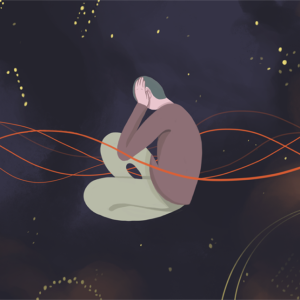August 2023
In this study, the researchers examined the connection between how much noise people are exposed to at work and their feelings of sadness and other signs of depression among young adults (read the article here). They found that this association was particularly strong in females, where those who believed they encountered a lot of noise in their workplace tended to experience more symptoms of depression. Interestingly, this pattern wasn’t observed in males, as noise exposure at work didn’t seem to impact their mood to the same extent.
In both males and females, those who reported more depressive symptoms also tended to be more sensitive to noise in general, indicating that noise sensitivity might be related to emotional well-being (read a related article here). The researchers also looked back to when the participants were 17 years old and found that those who reported feeling more depressed at that time were more likely to be sensitive to noise later on. This suggests that early depressive symptoms might contribute to heightened sensitivity to noise. This is consistent with a recent research study conducted by scientists and clinicians at Hashir International Specialist Clinics & Research Institute for Misophonia, Tinnitus and Hyperacusis which showed a strong relationship between symptoms related to sound intolerance and depression. Their study was published in 2022 in the Journal of the American Academy of Audiology (read the article here).

The image was adopted from: www.statnews.com
However, it’s important to note that among females who reported both exposure to occupational noise and noise sensitivity, there seemed to be a stronger connection with depressive symptoms. The researchers acknowledge that this finding needs further confirmation through additional studies. Additionally, the study relied on self-reported noise exposure, which might not be completely accurate. Actual noise levels weren’t measured, and participants’ hearing abilities weren’t assessed.
Previous research has suggested that noise sensitivity might be linked to how the brain processes sound. Certain brain areas’ organization could play a role, possibly affecting emotions. Consistent with past findings, this study revealed that individuals who were sensitive to noise tended to find noisy situations more bothersome and experienced higher stress levels.
To summarize, the study proposes a potential link between exposure to workplace noise and an increased risk of depression, particularly among females. Noise sensitivity might contribute to this association. However, since the study only captured a snapshot in time, a clear cause-and-effect relationship can’t be established. Further research is required to fully understand the complex interplay between noise exposure, sensitivity, and depression. Additionally, it’s important to keep in mind that the study’s reliance on participants’ self-reports means that future studies should consider measuring actual noise levels and accounting for other potential factors contributing to depression.
To learn more about the impact of noise on our health and various forms of sound intolerance take part in the 7th International Conference on Hyperacusis and Misophonia (ICHM7) is planned for Sunday to Tuesday, 15 – 17 September 2024. It will take place in Warsaw, in the Radisson Blu Sobieski Hotel. To learn more about this conference click here.